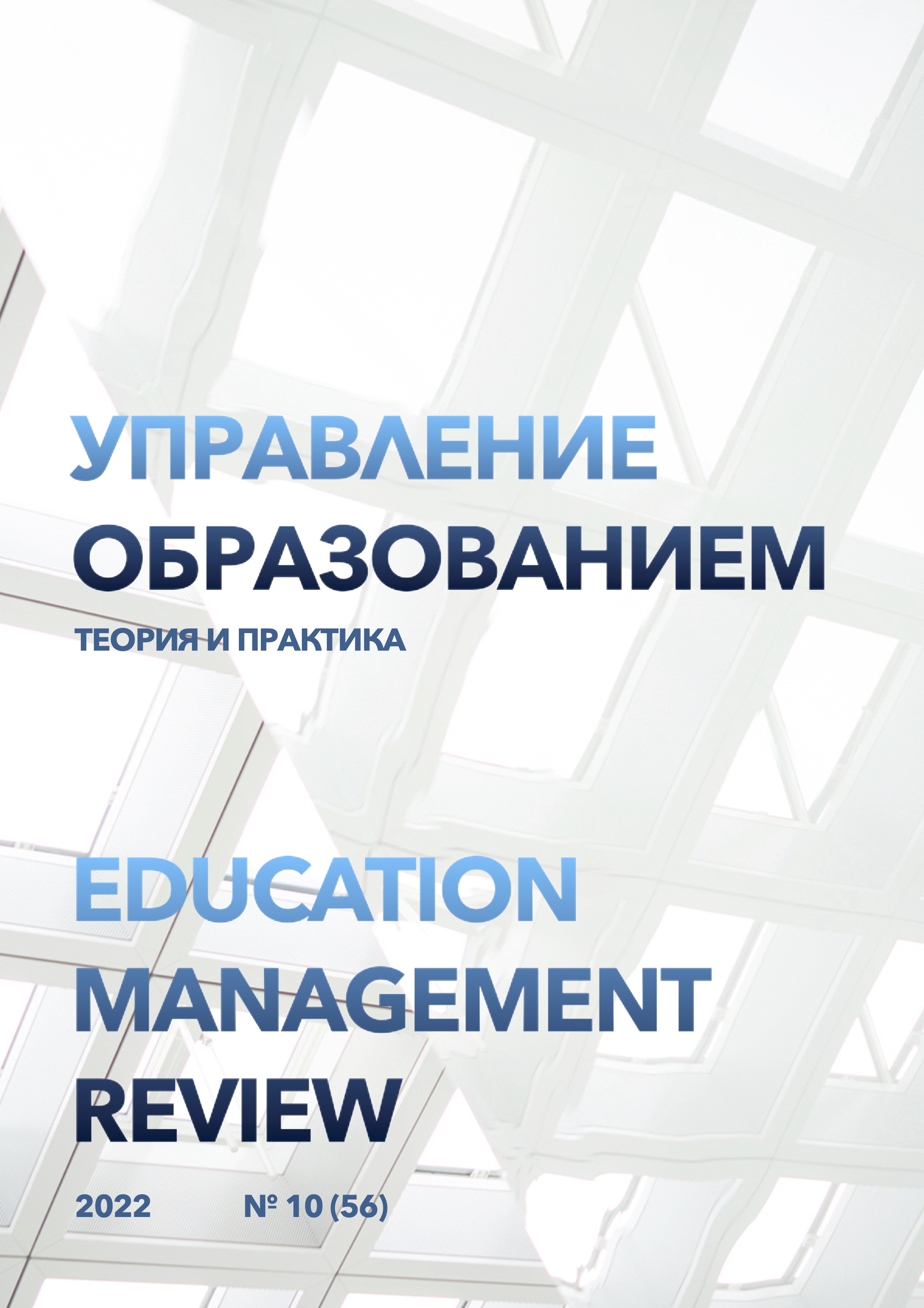Formation of foreign language communicative competence of future foreign language teachers using cloud technologies
DOI:
https://doi.org/10.25726/c8729-0865-2734-mKeywords:
foreign language communicative competence, media technologies, cloud technologies, Google ClassroomAbstract
The article is devoted to the study of the main possibilities of using cloud technologies in the process of forming the foreign language communicative competence of future foreign language teachers. The authors consider the main approaches to the definition of the concept of foreign language communicative competence, studied the features of the use of media technologies in the learning process, in particular cloud technologies. The advantages of using the Google Classroom platform in the process of learning a foreign language, which is the most common system of cloud-based services used in the educational process in higher education institutions in Russia, are described. A special place in the article is given to the description of the possibilities of using this service in the process of forming foreign language communicative competence. The use of Google services in the educational process not only contributes to the formation of foreign language communicative competence, but also significantly improves and diversifies the educational process, automates the work of the teacher, activates the educational activities of students, increases the level of cognitive activity, creates appropriate conditions for the formation and development of appropriate skills and abilities for them to carry out foreign language communication, improves the assimilation and reproduction of the received information. information. We see the prospect of further research in the creation of an integrated methodological system for the use of cloud technologies, the development of methodological recommendations for teachers, teachers, students of pedagogical educational institutions.
References
Аитов В.Ф. Проблемно-проектный подход к формированию иноязычной профессиональной компетентности студентов (на примере неязыковых факультетов педагогических вузов): автореф. дис. на соискание уч. степени д-ра пед. наук. Санкт-Петербург, 2007. 48 с.
Багаева А.П. Облачные технологии в образовании // Решетнёвские чтения, 2015. Т. 2. С. 459-461.
Вербицкий А.А. Активное обучение в высшей школе: контекстный подход. М.: Высшая школа, 1991. 207 с.
Гез Н.И. Формирование коммуникативной компетенции как объект зарубежных методических исследований // Иностранные языки в школе, 1985. № 2. С. 17-24.
Данилова Т.В., Лапыко Т.П., Тонких А.П. Применение разных форм интерактивного обучения в вузе в развитии коммуникативных умений студентов // Управление образованием: теория и практика. 2021. № 2(42). С. 104-114.
Изория Н.М. Формирования иноязычной компетентности будущих специалистов сферы туризма в вузах культуры и искусств: автореф. дис. на соискание уч. степени канд. пед. наук. М., 2008. 24 с.
Киргизова Е.В., Нарчуганов К.Н., Пак Н.И., Хегай Л.Б. Облачная веб-технология проведения конкурсных процедур оценки качества образовательных ресурсов // Вестник Российского университета дружбы народов. Серия: Информатизация образования, 2019. Т. 16. № 1. С. 35-45.
Королёва А.С. О возможности применения облачных технологий в образовании. 2012. http://nsportal.ru/shkola/informatika-i-ikt/library/2012/04/10/nauchnoe-issledovanie-o-vozmozhnostiprimeneniya
Николаева С.Ю. Цели обучения иностранным языкам в аспекте компетентностного подхода // Иностранные языки, 2010. № 2. С. 11-17.
Сафонова В.В. Коммуникативные компетенции: современные подходы к многоуровневому описанию в методических целях. О чем спорят в языковой педагогике. М.: Еврошкола, 2004. 236 с.
Солодовникова Ю.Ю. Формирование иноязычной коммуникативной компетентности как условие совершенствования профессиональной подготовки специалиста социальной работы: автореф. дис. на соискание уч. степени канд. пед. наук. Курск, 2009. 28 с.
Bodzin A.M., Klein B.S., Weaver S. The Inclusion of Environmental Education in Science Teacher Education. 2010 USA: Springer, 2-10. 352 p.
Canale M., Swain; M. Theoretical bases of communicative approaches to second language teaching and testing. Applied Linguistics, 1980. 53 p.
Martin F., Parker M.A. Use of Synchronous Virtual Classrooms: Why, Who, and How? // MERLOT Journal of Online Learning and Teaching, 2014. Vol. 10. No. 2. 192-210 p.
Miller M. Cloud Computing: Web-Based Applications That Change the Way You Work and Collaborate Online. -Que Publishing, 2008. - 312 р.
Reich J., Daccord Th., November A. Best Ideas for Teaching with Technology. New York: M.E. Sharpe, 2008. 312 p.
Virginia A. Scott. Google. Corporations that changed the world. USA: Greenwood Publishing Group, 2008. 168 p.




